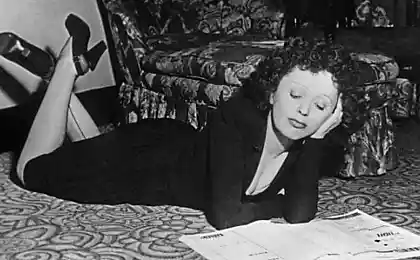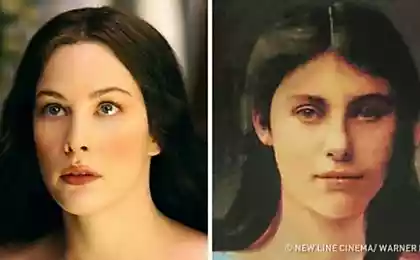227
True love burst into the life of Edith Piaf in the last year of her life, when she was almost desperate.
For the world-famous singer Edith Piaf, the biography of the ascent to fame began on a gloomy afternoon in October 1935. Then Giovanna Edith Gassion, in a long coat with rubbed sleeves, without stockings, pale with malnutrition, sang on the corner of Troyon Street and McMahon Avenue:
She was born like a sparrow, she lived like a sparrow, she will die like a sparrow!
Edith Piaf biography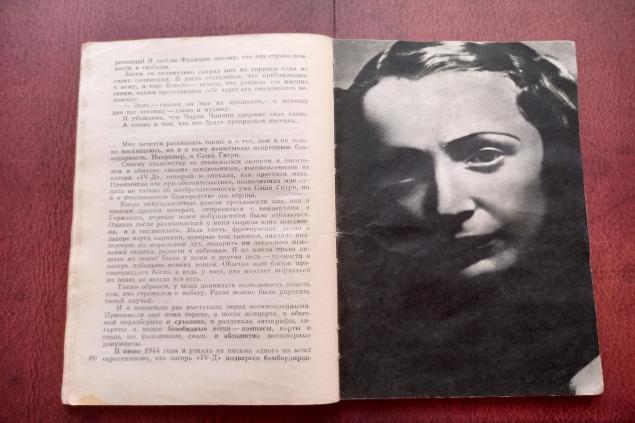
And she called herself not only by her birth name, but also Denise Jay, and Tanya, and Huguette Elia. It was on that day that she was heard by Louis Leplet, the owner of the Gernis cabaret, and invited to sing in his establishment.
By the way, for a newborn girl, for the future Edith Piaf, the biography began on December 19, 1915, at five in the morning. And also on the street where her mother went with her husband to go to the hospital. But while Louis Gassion was running for an ambulance, the rapid birth began. And when the carriage arrived, actress Lin Marsa (real name Annette Maillard) managed to give birth to a daughter.
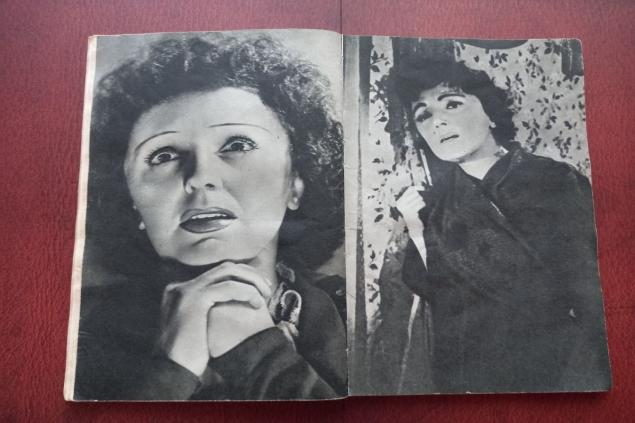
"At the ball of luck" In the book of memoirs "At the ball of luck" Edith Piaf described her coming into the world of God: “... as midwives in childbirth were ... two police officers on duty. The two most adorable law enforcement officers, who made the rounds and were attracted by my mother's groans, were on top of the situation.”
Almost two decades later, this girl will receive a name with which she will capture the hearts of fans both on stage and after her departure.
Rejecting all the names proposed by the future star, Leplet glanced at Edith and said that the name Moineau (French for sparrow) would best suit her. There was an artist with that name. And then it dawned on him: “In Parisian argo, “moino” is “piaf.” You're going to be Mom Piaf! ("mom" - baby, baby).
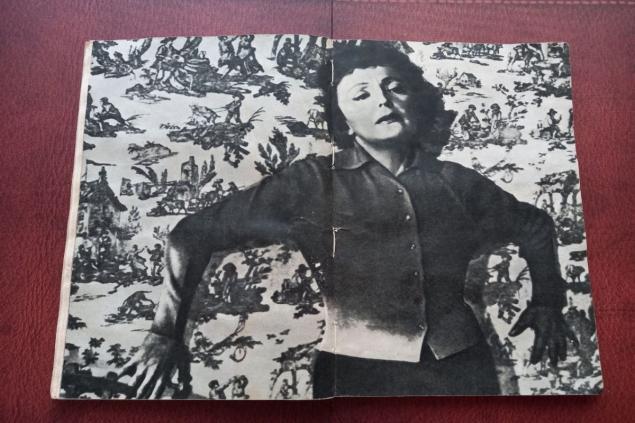
That is exactly what her performances in the Gernis cabaret were announced. And so began Edith Piaf's journey to glory. Triumphal and bitter, full of trials and full of love. I write the last word with a capital letter after one of Edith Piaf's friends - film director Marcel Blistin. Saying goodbye to Edith, Blistan writes, “She loved Love!” All her life she sought love, sought it, love was the meaning of her existence, she breathed it, she sang about it.
Yes, both Edith and song, and Edith and love are synonymous. In all manifestations and images, this feeling merged with her, became her personification. Selfless passion, reverent tenderness, unconditional self-denial, desperate recklessness, attentive care, faithful friendship, respectful patronage, inspired co-creation, tireless efforts in the comprehension of art, festive lightness and ... immeasurable depth of grief and suffering managed to bring love to Edith’s forty-seven-year life.
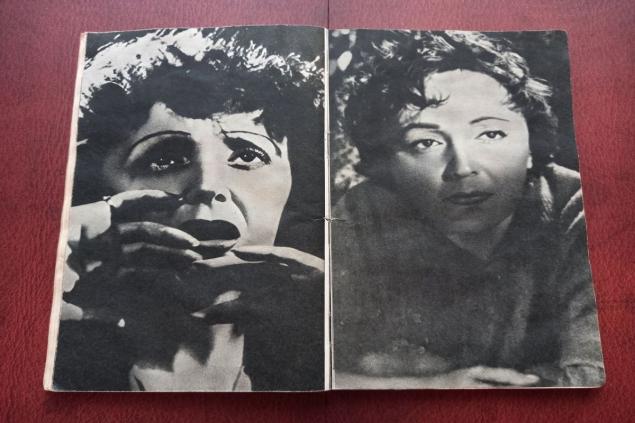
It is no coincidence that one of her songs, apparently forever beloved not only in France, is called "Non, Je Ne Regrette Rien" - "No, I do not regret anything." Created in 1956 by Charles Dumont (music) and Michel Walker (text), it contains many references to the past of the singer, who, having endured the most terrible losses, was still grateful for fate for everyone she loved, for everything she could endure.
For Edith Piaf, the biography of the ascent to glory is impossible without love Love called her to perform in a Nazi camp in front of French prisoners of war. And not just singing. She was filmed with them “in memory”, and at home, underground photographers cut and enlarged pictures of the faces of prisoners, produced them new documents. The singer carried them in a suitcase with a double bottom to the next concert and distributed them to her listeners. Many people took advantage of the chance to escape. And after the war, they came to the concerts of Edith Piaf in the real halls.
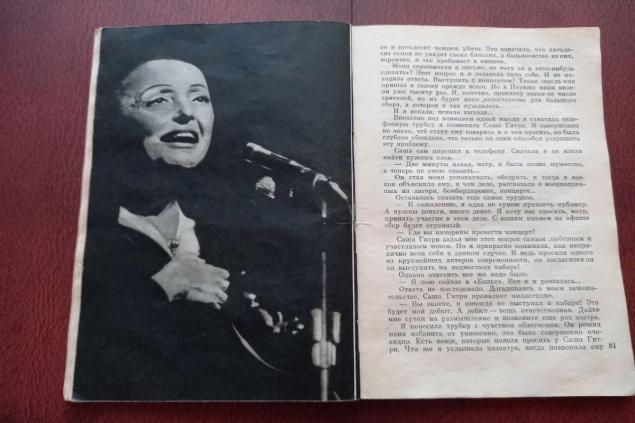
Love gave her strength at the end of October 1949 not to cancel the concert, when it became known about the death of the boundlessly beloved Marcel, rushing over the ocean to New York to her, his sparrow. Edith went on stage, said, "I'll sing for Serdan," and sang, holding on almost to the final. And after the "Hymn of Love" lost consciousness.
And this love to her, only 46 years old, and already exhausted by many operations after accidents, unbearable pain, dependence on morphine, learned a terrible diagnosis - this love gave Edith herself and Theo, until the last day of her life.
Edith Piaf's Last Love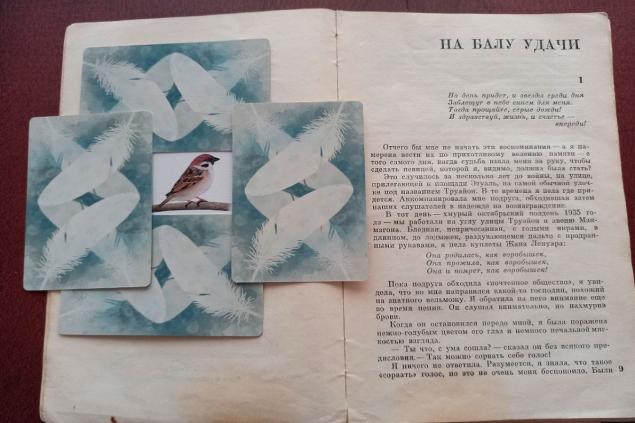
When people say that Edith Piaf’s last love is a moving and incredible story, I want to bet. Touching? Very! But why is it incredible? Twenty-year age difference? Full! Now who's going to surprise you? The fact that a young handsome fell in love with a woman disfigured by operations and arthritis, sharply decrepit? But we didn't see how she sang.
And Jean Cocteau heard and saw, “She transcends herself.” She transcends her songs, their music and their words. She surpasses all of us. The soul of the street penetrates into all corners of the city. And it is no longer Edith Piaf who sings, but it is raining, the wind whistling, or the moonlight casting its veil.
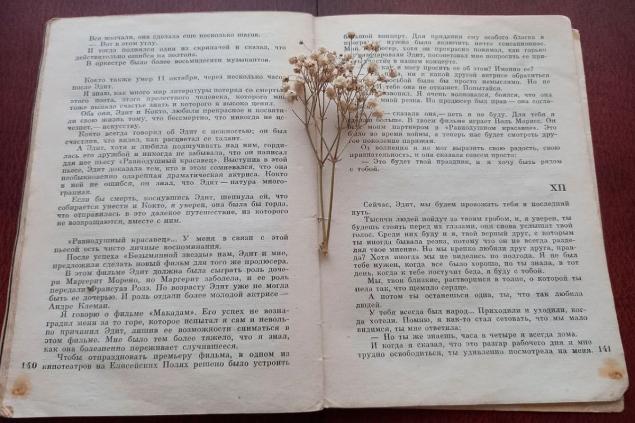
I really believe that Theophanis Lambucas, thanks to Edith Piaf who received the name Theo Sarapo, simply adored her, revered her. He knew her heart and felt her kinship. And that he cared for her like a child, read her aloud, fed her with a spoon, lulled her...
They got married on October 9, 1962 (I confess, October 9 is very dear to me). And a year later, on October 10, 1963, the soul of song, love and genius Edith Piaf flew to heaven. Theo outlived his beloved by seven years. He died in a car accident.
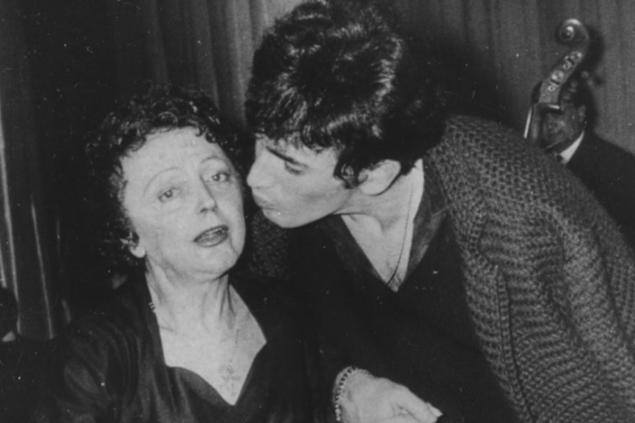
Not so much for Edith and Theo, but for those who do not believe in the possibility of such love, I want to conclude the story with the words of the above-mentioned Marcel Blistan: I do not know much of you, Theo, but I can say that there is not a word of truth in the slander that has been spread about you. In any case, the year Edith was with you was a year of happiness. This past year...and all of her true friends thank you for it. Blistan wrote this just after Edith Piaf's funeral.
She was born like a sparrow, she lived like a sparrow, she will die like a sparrow!
Edith Piaf biography

And she called herself not only by her birth name, but also Denise Jay, and Tanya, and Huguette Elia. It was on that day that she was heard by Louis Leplet, the owner of the Gernis cabaret, and invited to sing in his establishment.
By the way, for a newborn girl, for the future Edith Piaf, the biography began on December 19, 1915, at five in the morning. And also on the street where her mother went with her husband to go to the hospital. But while Louis Gassion was running for an ambulance, the rapid birth began. And when the carriage arrived, actress Lin Marsa (real name Annette Maillard) managed to give birth to a daughter.

"At the ball of luck" In the book of memoirs "At the ball of luck" Edith Piaf described her coming into the world of God: “... as midwives in childbirth were ... two police officers on duty. The two most adorable law enforcement officers, who made the rounds and were attracted by my mother's groans, were on top of the situation.”
Almost two decades later, this girl will receive a name with which she will capture the hearts of fans both on stage and after her departure.
Rejecting all the names proposed by the future star, Leplet glanced at Edith and said that the name Moineau (French for sparrow) would best suit her. There was an artist with that name. And then it dawned on him: “In Parisian argo, “moino” is “piaf.” You're going to be Mom Piaf! ("mom" - baby, baby).

That is exactly what her performances in the Gernis cabaret were announced. And so began Edith Piaf's journey to glory. Triumphal and bitter, full of trials and full of love. I write the last word with a capital letter after one of Edith Piaf's friends - film director Marcel Blistin. Saying goodbye to Edith, Blistan writes, “She loved Love!” All her life she sought love, sought it, love was the meaning of her existence, she breathed it, she sang about it.
Yes, both Edith and song, and Edith and love are synonymous. In all manifestations and images, this feeling merged with her, became her personification. Selfless passion, reverent tenderness, unconditional self-denial, desperate recklessness, attentive care, faithful friendship, respectful patronage, inspired co-creation, tireless efforts in the comprehension of art, festive lightness and ... immeasurable depth of grief and suffering managed to bring love to Edith’s forty-seven-year life.

It is no coincidence that one of her songs, apparently forever beloved not only in France, is called "Non, Je Ne Regrette Rien" - "No, I do not regret anything." Created in 1956 by Charles Dumont (music) and Michel Walker (text), it contains many references to the past of the singer, who, having endured the most terrible losses, was still grateful for fate for everyone she loved, for everything she could endure.
For Edith Piaf, the biography of the ascent to glory is impossible without love Love called her to perform in a Nazi camp in front of French prisoners of war. And not just singing. She was filmed with them “in memory”, and at home, underground photographers cut and enlarged pictures of the faces of prisoners, produced them new documents. The singer carried them in a suitcase with a double bottom to the next concert and distributed them to her listeners. Many people took advantage of the chance to escape. And after the war, they came to the concerts of Edith Piaf in the real halls.

Love gave her strength at the end of October 1949 not to cancel the concert, when it became known about the death of the boundlessly beloved Marcel, rushing over the ocean to New York to her, his sparrow. Edith went on stage, said, "I'll sing for Serdan," and sang, holding on almost to the final. And after the "Hymn of Love" lost consciousness.
And this love to her, only 46 years old, and already exhausted by many operations after accidents, unbearable pain, dependence on morphine, learned a terrible diagnosis - this love gave Edith herself and Theo, until the last day of her life.
Edith Piaf's Last Love

When people say that Edith Piaf’s last love is a moving and incredible story, I want to bet. Touching? Very! But why is it incredible? Twenty-year age difference? Full! Now who's going to surprise you? The fact that a young handsome fell in love with a woman disfigured by operations and arthritis, sharply decrepit? But we didn't see how she sang.
And Jean Cocteau heard and saw, “She transcends herself.” She transcends her songs, their music and their words. She surpasses all of us. The soul of the street penetrates into all corners of the city. And it is no longer Edith Piaf who sings, but it is raining, the wind whistling, or the moonlight casting its veil.

I really believe that Theophanis Lambucas, thanks to Edith Piaf who received the name Theo Sarapo, simply adored her, revered her. He knew her heart and felt her kinship. And that he cared for her like a child, read her aloud, fed her with a spoon, lulled her...
They got married on October 9, 1962 (I confess, October 9 is very dear to me). And a year later, on October 10, 1963, the soul of song, love and genius Edith Piaf flew to heaven. Theo outlived his beloved by seven years. He died in a car accident.

Not so much for Edith and Theo, but for those who do not believe in the possibility of such love, I want to conclude the story with the words of the above-mentioned Marcel Blistan: I do not know much of you, Theo, but I can say that there is not a word of truth in the slander that has been spread about you. In any case, the year Edith was with you was a year of happiness. This past year...and all of her true friends thank you for it. Blistan wrote this just after Edith Piaf's funeral.
Recently I decided to take my brother in, I thought it would be more fun and profitable together, but soon I regretted it.
Non-standard logical problems in pictures that require inhuman attention
